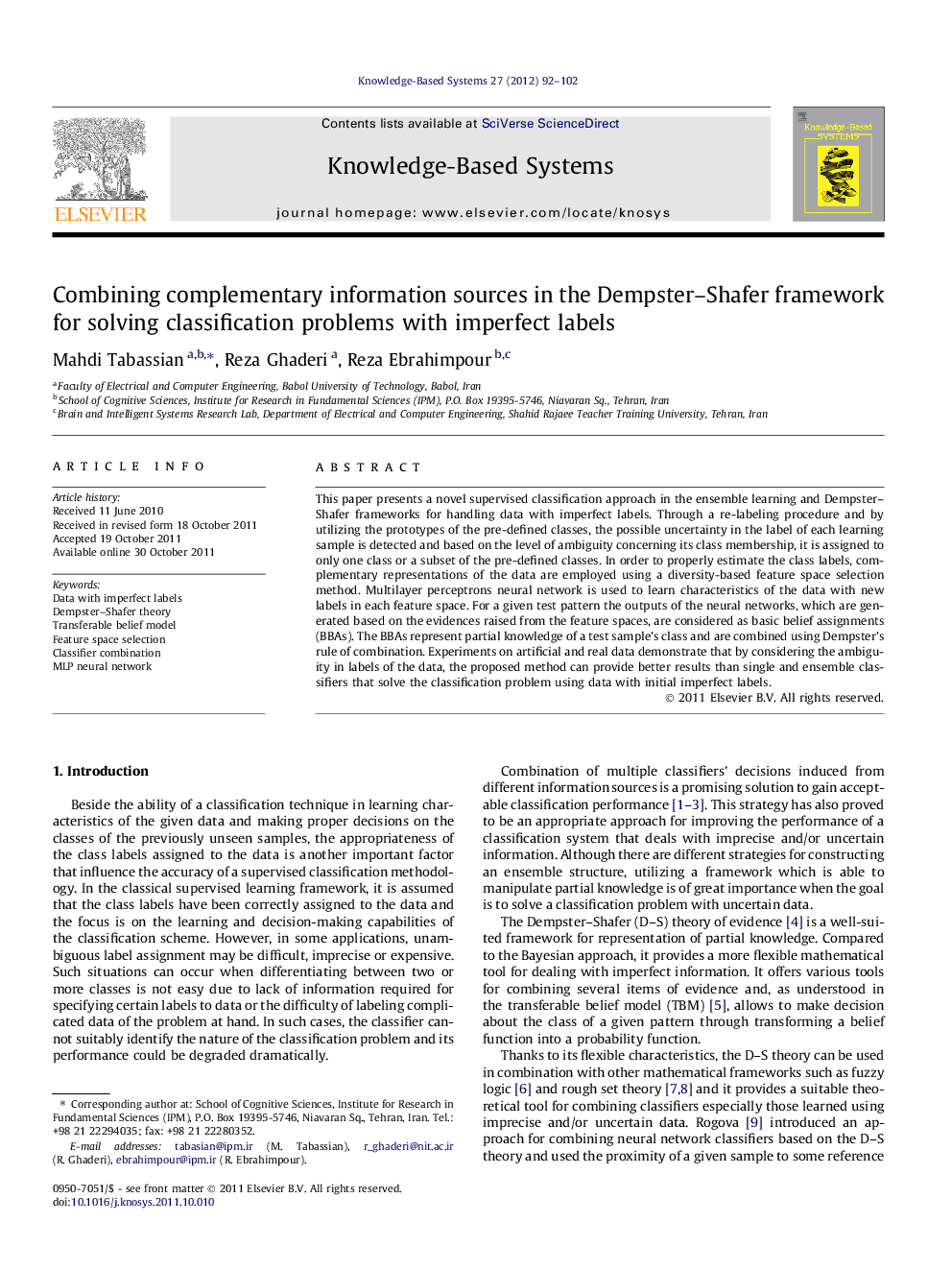| Article ID | Journal | Published Year | Pages | File Type |
|---|---|---|---|---|
| 402467 | Knowledge-Based Systems | 2012 | 11 Pages |
This paper presents a novel supervised classification approach in the ensemble learning and Dempster–Shafer frameworks for handling data with imperfect labels. Through a re-labeling procedure and by utilizing the prototypes of the pre-defined classes, the possible uncertainty in the label of each learning sample is detected and based on the level of ambiguity concerning its class membership, it is assigned to only one class or a subset of the pre-defined classes. In order to properly estimate the class labels, complementary representations of the data are employed using a diversity-based feature space selection method. Multilayer perceptrons neural network is used to learn characteristics of the data with new labels in each feature space. For a given test pattern the outputs of the neural networks, which are generated based on the evidences raised from the feature spaces, are considered as basic belief assignments (BBAs). The BBAs represent partial knowledge of a test sample’s class and are combined using Dempster’s rule of combination. Experiments on artificial and real data demonstrate that by considering the ambiguity in labels of the data, the proposed method can provide better results than single and ensemble classifiers that solve the classification problem using data with initial imperfect labels.
